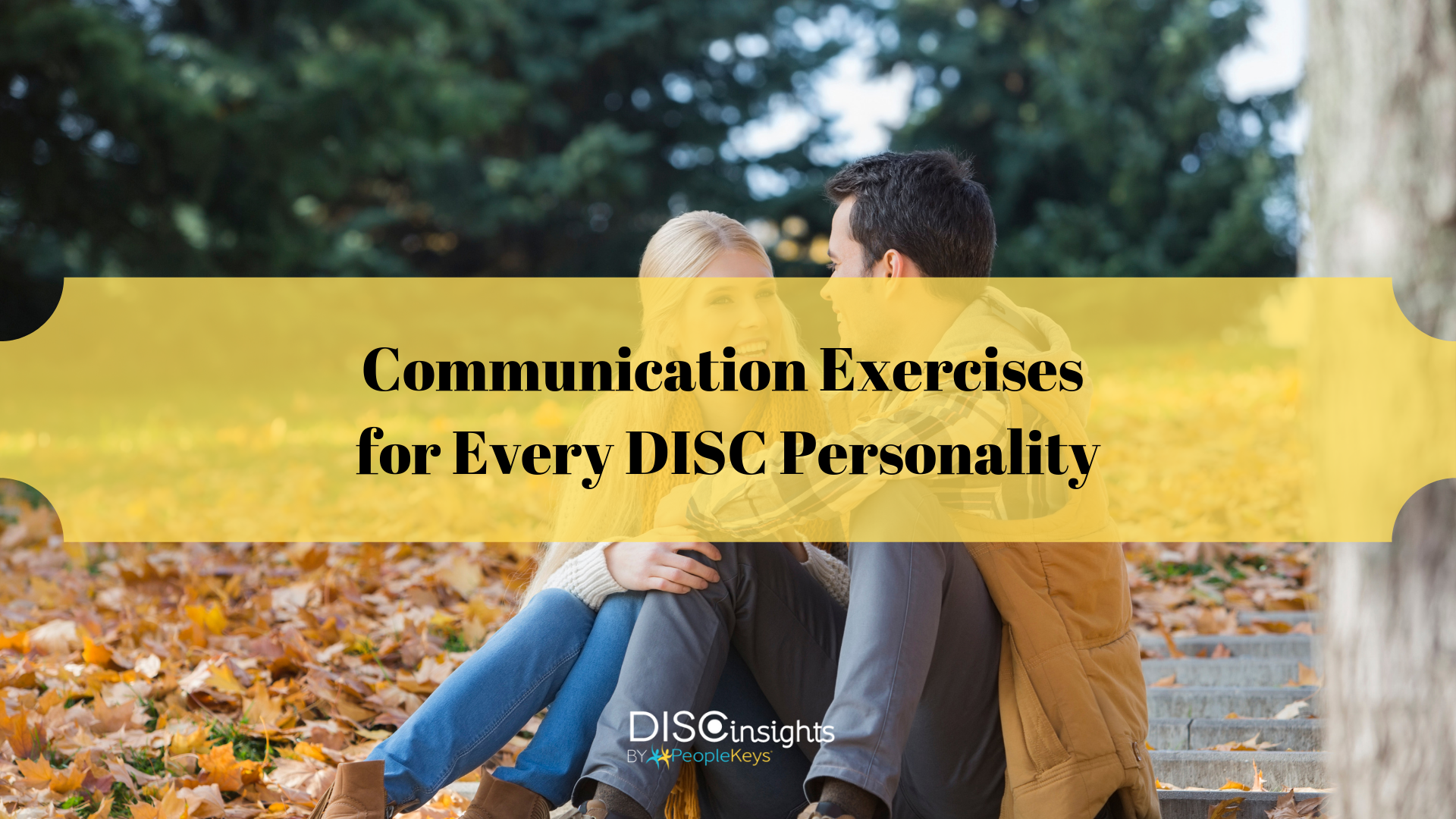- SHOP BY PRODUCT
- DISC TRAINING & CERTIFICATION TOOLS
- DISC RESOURCES
- BLOG
- SHOP BY PRODUCT
- DISC TRAINING & CERTIFICATION TOOLS
- DISC RESOURCES
- BLOG
- ALL ITEMS



Building strong communication skills is one of the biggest battles individuals of all DISC styles face. Any DISC personality may struggle to communicate with those of different styles, and this can task managers or family counselors with guiding efficient communication. Understanding different DISC styles can help management and/or family members develop strong communication exercises to build the communication skills of each member.
"D" personality types may be natural leaders, but they do not always communicate in the most effective manner. "D" styles are often goal-oriented, meaning they may omit details when conveying information and may even fail to involve others in resolving problems. Type “D” personalities can work on building skills at home by verbally conveying recipes to their loved ones who are cooking, for example.
Additionally, "D" types may become impatient with others, occasionally to the point where they do not ask questions or discuss problems that may arise. They need to build a better understanding of their teammates. One exercise to build on these skills involves dividing the group into teams based on their primary DISC styles. Then, show several pieces of artwork to the group and have the groups discuss what they see in each piece. Then, one spokesperson can communicate to everybody else what the group sees and what the piece means. It may pay off to discuss where the differences in perception come from, allowing group members to better understand each other’s perspectives and build empathy.
"I" personality types can be knowledgeable about what motivates others, but they need to know how to use natural charisma to share ideas and bring everyone together. Taking personality tests and discussing the results openly may be helpful in encouraging “I” styles to learn more about the motivations of their team members or life partners.
Improvisation is a skill "I" types can harness to build intuition and decision-making skills in a team setting, but “I” personality styles struggle to provide an adequate structure for individuals who may need more definition. Role-playing is a great way for "I" styles to learn more about the other personality styles, though the popular improv game "Hitchhiker" is certainly an exercise anybody will benefit from. In the game, a leader positions four chairs as if they are the seats of a car. Three people sit in the seats, while they pretend to pick up the fourth individual as a hitchhiker. The hitchhiker takes on one of the four DISC styles or a character with this style, and the other members of the group try to take on the same style or character while having a conversation. The others watching must guess which DISC style the members in the car are portraying.
"S" personality styles are good at asking for feedback and maintaining stability in a group despite ongoing changes. "S" personalities are attentive to the needs of others, but they are not always as direct as they need to be when conveying negative feedback or information. This can leave others unclear about problems they need to solve. One way to improve communication skills for the “S” is to write a letter to somebody they have difficulty communicating with. This could be a boss, a co-worker, or a loved one. The letter should provide honest feedback without getting caught up in emotionally charged language or becoming passive.
"C" personality types consider as many factors as possible before making a decision. They are great at gathering information and assessing risks before they act. "C" styles sometimes rely too heavily on written instructions, perhaps foregoing verbal communication. A great exercise to strengthen this weakness is for one team member to have a set of instructions to complete a task, like a puzzle or piece of furniture to put together, while the "C" type must complete the task without looking at the written instructions. The other team member can only use verbal directions to instruct the "C" personality type to complete the task.
Finally, "C" types are hesitant to try new solutions they have not yet been able to test for themselves. For some "C" personalities it may be worthwhile to encourage working on projects in pairs rather than individually so that they can benefit from having the input and vicarious experiences of another personality style.
With these communication exercises in your toolkit, you can help each member of your team, family member, or partner in a relationship build strengths and diminish weaknesses prompted by different DISC personality styles. When you know the DISC styles of those you interact with, you can facilitate better communication skills, build stronger teams, and loving families.
Interested in mastering DISC as a tool for coaching a positive change? Check out our Certified Behavioral Life Coaching program.

© PeopleKeys. All Rights Reserved
WORKING DAYS/HOURS
Mon - Fri / 8:30AM - 5:00PM EST
